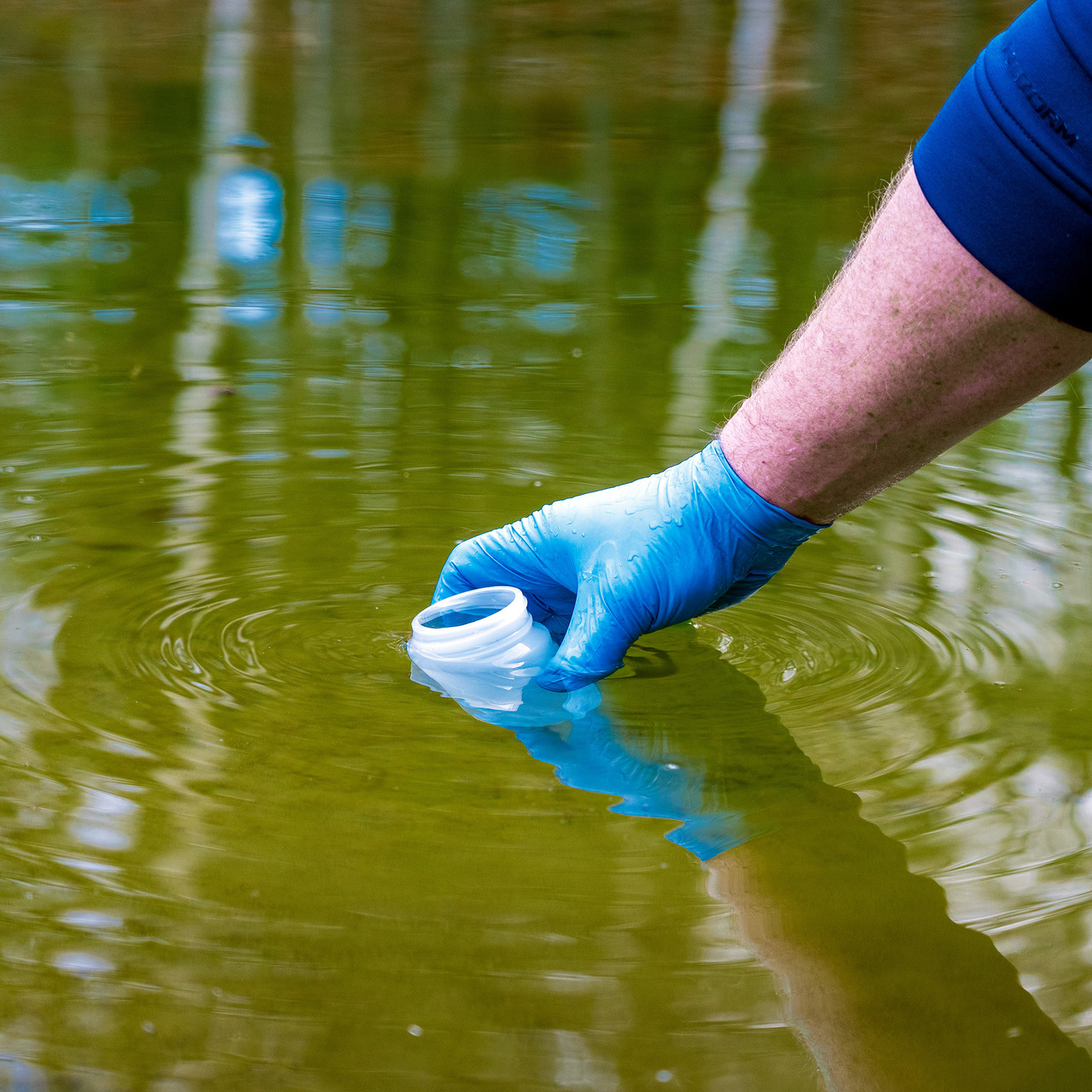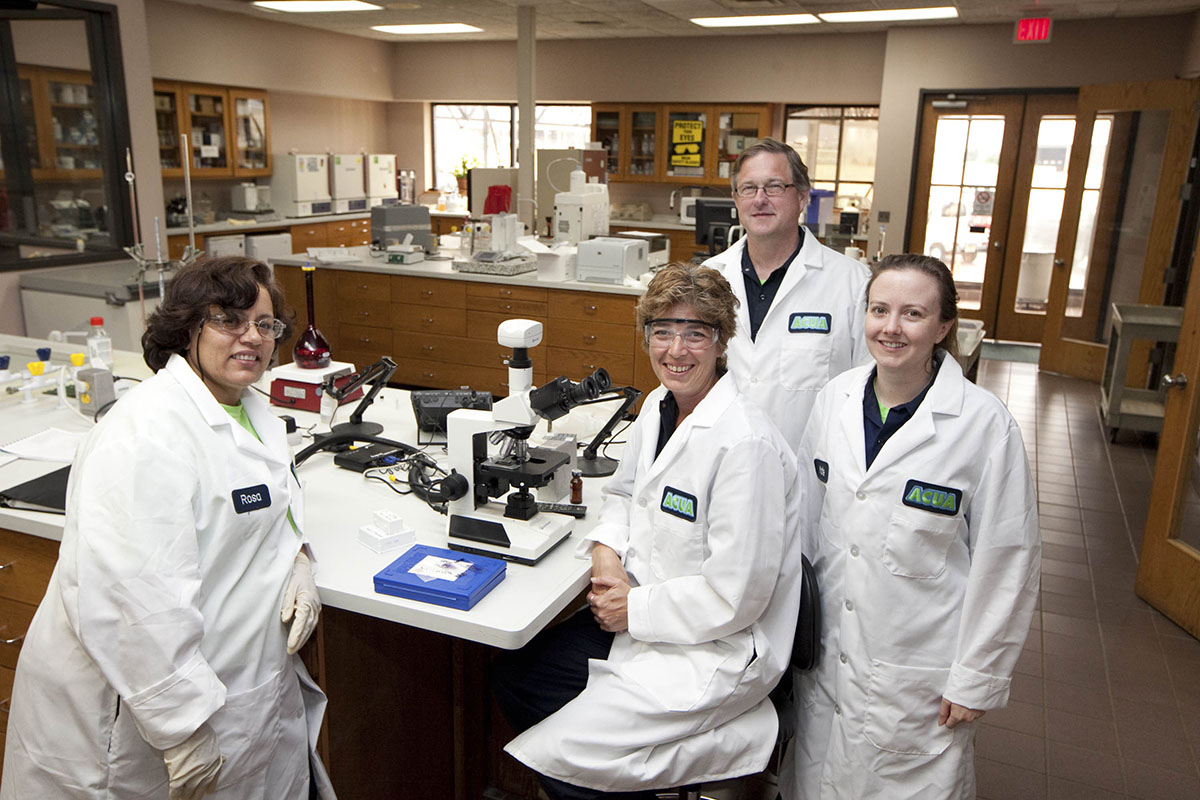Learn Exactly How Water Testing Can Detect Pollutants and Protect Your Household's Well-being
Recognizing the value of water screening is important for protecting your family's wellness, as our water supply can nurture hidden dangers. By discovering the technicians of water testing, one can uncover the invisible hazards prowling in apparently beautiful water sources.
Relevance of Water Checking
Recognizing the vital duty water plays in sustaining life, the value of water screening can not be overstated. Guaranteeing that water is cost-free from hazardous materials is crucial for preserving healthy and balanced communities and communities. Well water testing services.
Water testing offers as a proactive step to recognize prospective hazards that may jeopardize water top quality. Through systematic analysis, it helps discover physical, chemical, and organic criteria that can pose dangers to human health and wellness. Normal screening enables the very early discovery of concerns, facilitating timely treatments to stop prevalent contamination and associated illness.
Furthermore, water testing supports regulatory conformity, making certain that water service providers satisfy recognized safety standards and standards established by governmental authorities. It promotes transparency and accountability, building public count on the water supply system. Furthermore, screening gives useful data that informs water monitoring approaches, allowing sustainable usage and conservation of this precious source.
Fundamentally, water testing is an indispensable tool that safeguards public wellness, ensures regulative adherence, and advertises the sustainable administration of water resources. Its significance in protecting both neighborhoods and people can not be underestimated.
Common Water Impurities
Amongst the various elements that can jeopardize water high quality, typical water contaminants include an array of physical, chemical, and biological compounds that pose considerable threats to human health and the atmosphere. Physical impurities commonly involve sediments or natural materials put on hold in water, which can impact quality and taste. Chemical contaminants encompass a large selection of compounds, consisting of chemicals, herbicides, steels like lead and mercury, and industrial chemicals. These chemicals can infiltrate water materials with farming runoff, industrial discharges, or leaching from pipelines and storage space tanks.
Organic impurities, primarily bacteria, viruses, and protozoa, occur from human and animal waste entering water supply. Virus such as E. coli, Giardia, and Cryptosporidium are notorious for causing gastrointestinal illnesses and can be especially dangerous to young kids, the senior, and those with jeopardized immune systems. Nitrates and nitrites, commonly originating from fertilizers, present one more wellness threat, especially to infants, possibly resulting in conditions like methemoglobinemia or "blue child syndrome."
In addition, arising contaminants, consisting of pharmaceuticals and personal care products, have elevated issues due to their perseverance and unidentified lasting impacts. Comprehending these contaminants is critical for implementing efficient water therapy strategies and guaranteeing risk-free alcohol consumption water.
Exactly How Water Testing Functions
Recognizing the range of pollutants in water highlights the significance of effective testing methods to secure public wellness. Water testing is a systematic process developed to recognize and quantify different impurities that could position threats to human health and wellness. This entails a collection of logical treatments that identify impurities such as germs, hefty steels, natural chemicals, and various other toxins. The screening procedure normally starts with sample collection from the water resource, making certain that samples are unpolluted and depictive throughout the collection procedure.
As soon as samples are gathered, they undertake research laboratory analysis using different methods. Chemical screening often includes spectrometry or chromatography, both of which can determine and determine details chemical substances. For microbiological testing, methods such as membrane filtering or enzyme substratum examinations are made use of to spot pathogenic bacteria. In addition, physical features like color, ph, and turbidity are examined to give understanding right into the total high quality of the water.
The specific techniques utilized in water testing rely on the details pollutants of issue and the water's intended usage. By constantly using these extensive testing methods, scientists and public health authorities can make certain the security and high quality of water, thus protecting areas from prospective health dangers.
Choosing the Right Examination
Exactly how does one identify one of the most proper water test for their demands? Choosing the right examination involves recognizing both the particular characteristics of the water resource and the potential contaminants that might be present. The first action is evaluating the water source-- be it local, well, or surface water-- as each has distinct threats. Metropolitan water could call for testing for disinfectant by-products, while well water may require testing for nitrates, microorganisms, and heavy metals.
Following, consider recent events and environmental elements. Close-by agricultural activities might necessitate testing for herbicides and pesticides, whereas industrial zones could require checks for chemical contaminants. Furthermore, any type of modifications in water smell, taste, or appearance must motivate certain testing for common impurities like lead, chlorine, or organic microorganisms.
Expert water testing services use comprehensive packages that target a variety of possible pollutants. These kits commonly straighten with criteria established by the Environmental Security Firm (EPA) or local health departments. For an extra tailored approach, seeking advice from a water high quality expert can give insights into which details examinations are required based upon regional concerns and specific health and wellness needs, ensuring the defense of your home's health.

Preserving Water Safety

In addition to testing, appropriate upkeep of water supply plays an essential role. This includes servicing and evaluating pipes systems, tank, and septic systems to avoid leakages or backflow that might present impurities - Water Tesing Services Orlando. Using water purification systems made to address particular regional problems can even more secure versus contaminations, providing an additional layer of security
Public understanding and education and learning are just as crucial in preserving water security. Neighborhoods ought to be informed about potential threats connected with neighborhood water resources and the necessary steps to reduce them. Urging public participation in water safety efforts cultivates a cumulative duty that enhances general performance.
Ultimately, a comprehensive technique that incorporates normal testing, system upkeep, and neighborhood involvement is necessary in securing water quality. By doing so, family members can be guaranteed of clean and risk-free water, safeguarding their wellness and well-being.

Conclusion
Routine water screening is important for identifying pollutants such as bacteria, heavy steels, and chemicals that pose health and wellness threats. By evaluating water examples, undetected risks can be detected, making certain the provision like it of risk-free drinking water. This positive strategy helps produce a much healthier environment and promotes informed decision-making regarding water safety and security. Choosing suitable testing approaches and keeping alertness in water quality are vital actions in safeguarding public wellness and making sure the wellness of all house participants.
Recognizing the relevance of water testing is essential for guarding your family members's wellness, as our water supply can nurture hidden risks.Water testing offers as an aggressive procedure to determine prospective risks that might jeopardize water top quality.Furthermore, water screening supports regulative compliance, guaranteeing that water providers meet recognized security standards and guidelines set by governmental authorities. Metropolitan water might need testing for disinfectant by-products, while well water may need screening for nitrates, microorganisms, and hefty steels.
Routine water screening is a critical reference element in maintaining the top quality of water resources, enabling prompt treatments before pollutants reach hazardous levels.
Comments on “Discover Reliable Well Water Testing Services for Your Assurance”